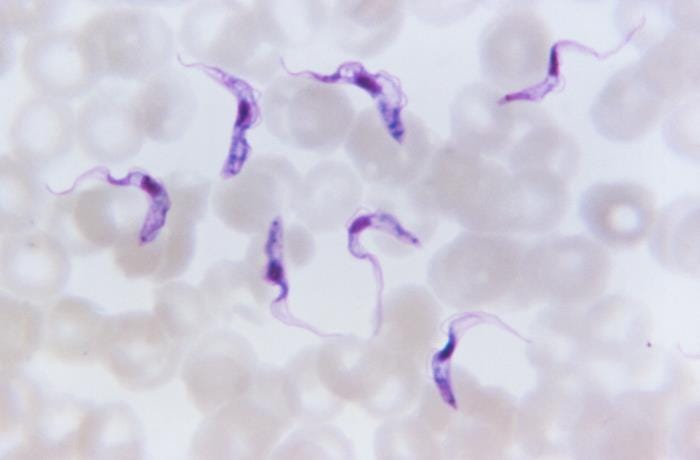West African sleeping sickness eliminated in Guinea as a Public Health Problem, Niger eliminates river blindness
Guinea
It was announced last week that Guinea has eliminated the gambiense form of human African trypanosomiasis as a public health problem. This form of human African trypanosomiasis, the only type transmitted in Guinea, is the first neglected tropical disease to be eliminated in the country.
WHO Director-General, Dr Tedros Adhanom Ghebreyesus said the announcement is both a testament to the global progress against neglected tropical diseases and a beacon of hope for nations still battling human African trypanosomiasis.
Human African trypanosomiasis, also known as sleeping sickness is a vector-borne parasitic disease caused by infection with protozoan parasites belonging to the genus Trypanosoma. These parasites are passed to humans through the bite of infected tsetse flies, which acquire the infection from humans or animals carrying the pathogenic parasites. There are two forms of the disease: one caused by Trypanosoma brucei gambiense, found in 24 countries in West and Central Africa and which accounts for more than 92% of cases; and another caused by Trypanosoma brucei rhodesiense, found in 13 countries in East and Southern Africa accounting for the remaining cases.
The main approaches to controlling sleeping sickness include reducing the reservoirs of infection and reducing the presence of the tsetse fly. Screening of people at risk helps identify patients earlier in the disease development. If diagnosis is made early, it is possible to avoid complicated and risky treatment procedures during the advanced stage, and to improve the cure prognosis.
Related:
African sleeping sickness eliminated as a public health problem in Chad
Neglected tropical diseases: What are they as another World NTD Day comes and goes
Niger
Niger has met the criteria for onchocerciasis elimination, making it the fifth country globally and the first country in Africa to be acknowledged by WHO for interrupting transmission of the parasite Onchocerca volvulus, WHO announced this last week also.
Eliminating a disease is a significant achievement that requires tireless dedication,” stated Dr Tedros Adhanom Ghebreyesus, WHO Director-General. “I congratulate Niger for its commitment to liberating its population from this blinding, stigmatizing illness that causes so much human suffering among the poorest. This success is yet another testament to the remarkable strides we have made against neglected tropical diseases and offers hope to other nations still battling onchocerciasis, demonstrating that elimination is possible.”
Onchocerciasis, commonly known as river blindness, is a parasitic disease and is the second leading infectious cause of blindness worldwide, after trachoma. It is transmitted to humans through the bites of infective black flies, primarily found in riverine areas. The disease primarily affects rural populations in sub-Saharan Africa and Yemen, with smaller endemic areas found in parts of Latin America.






